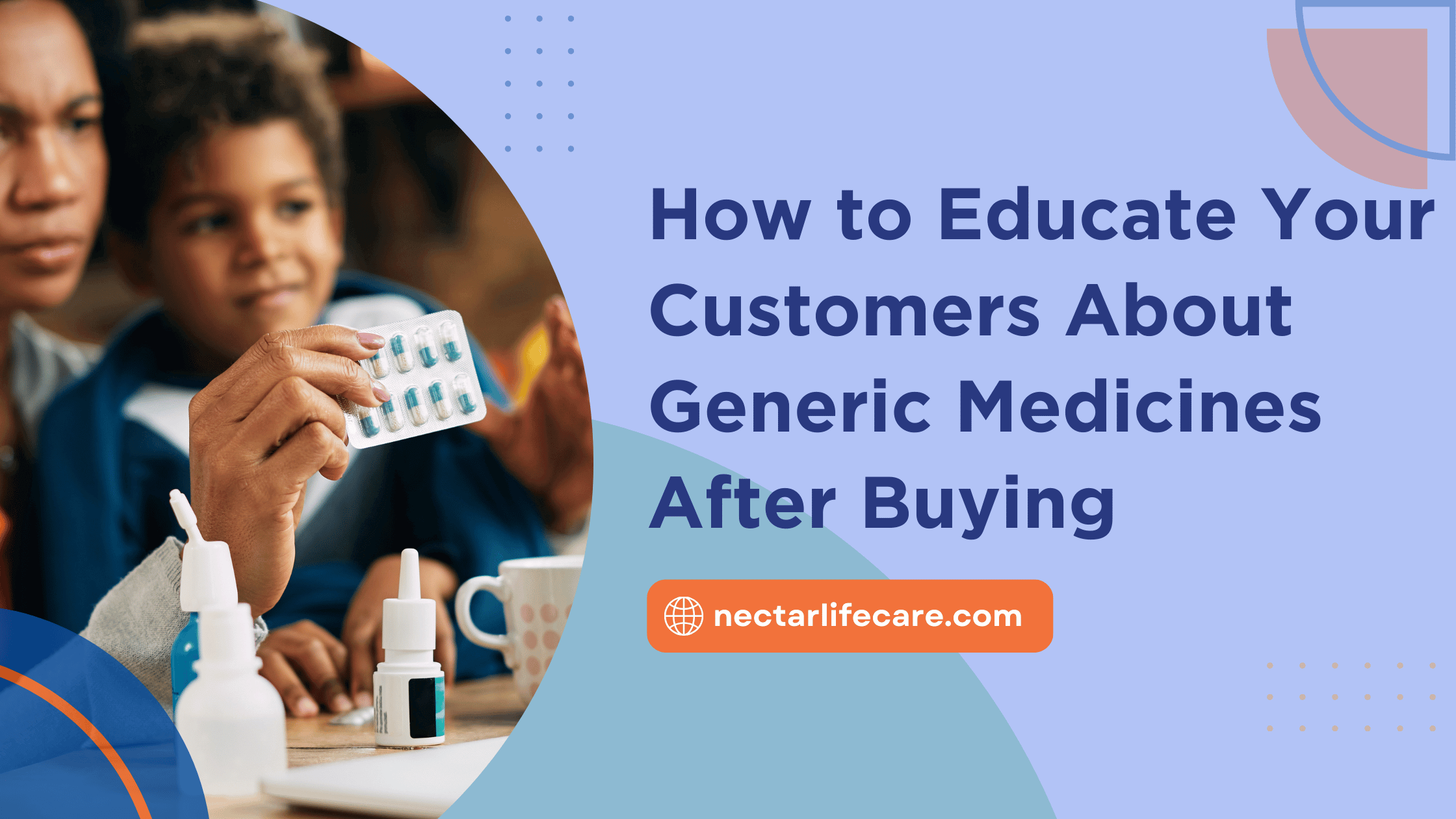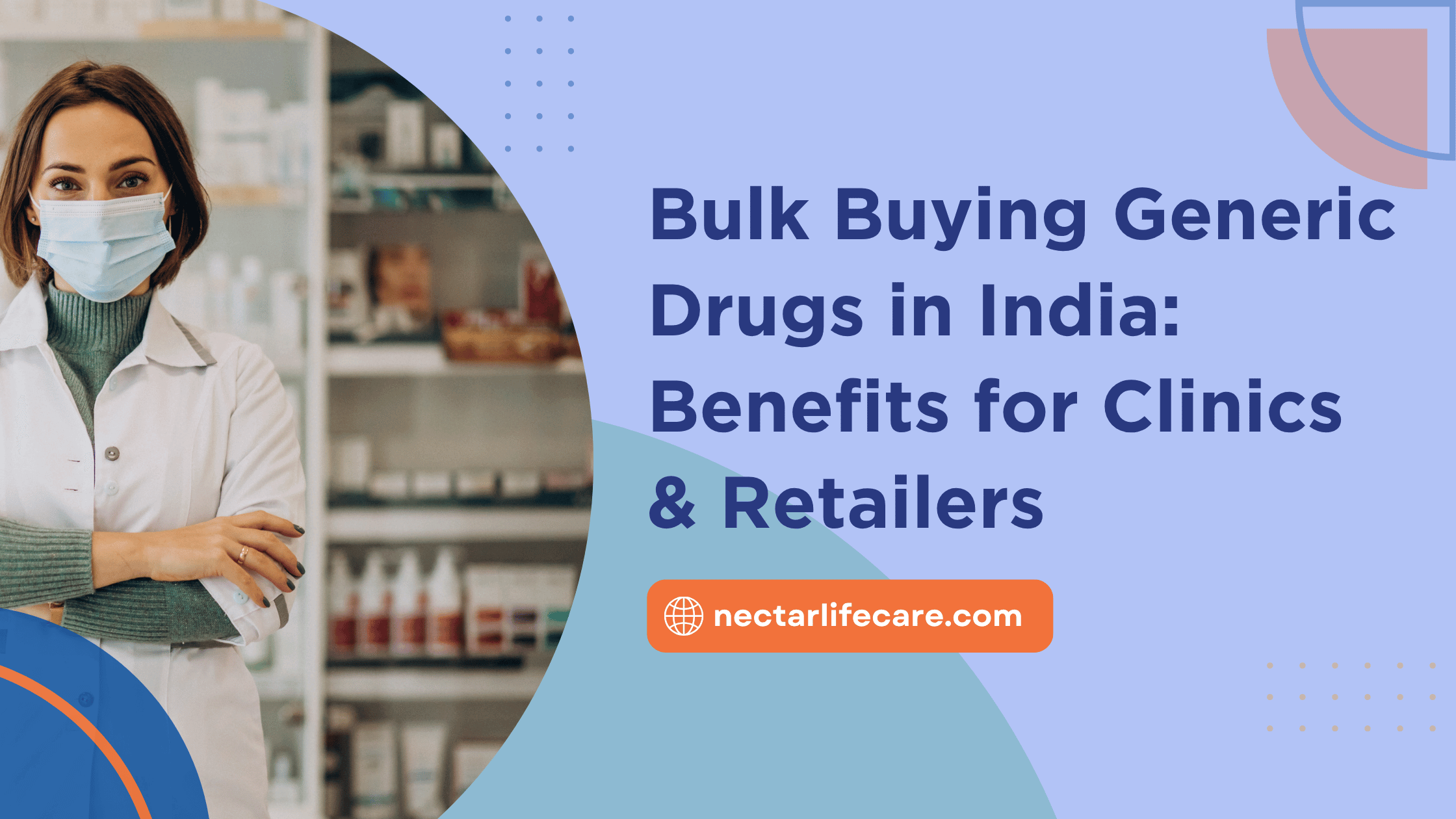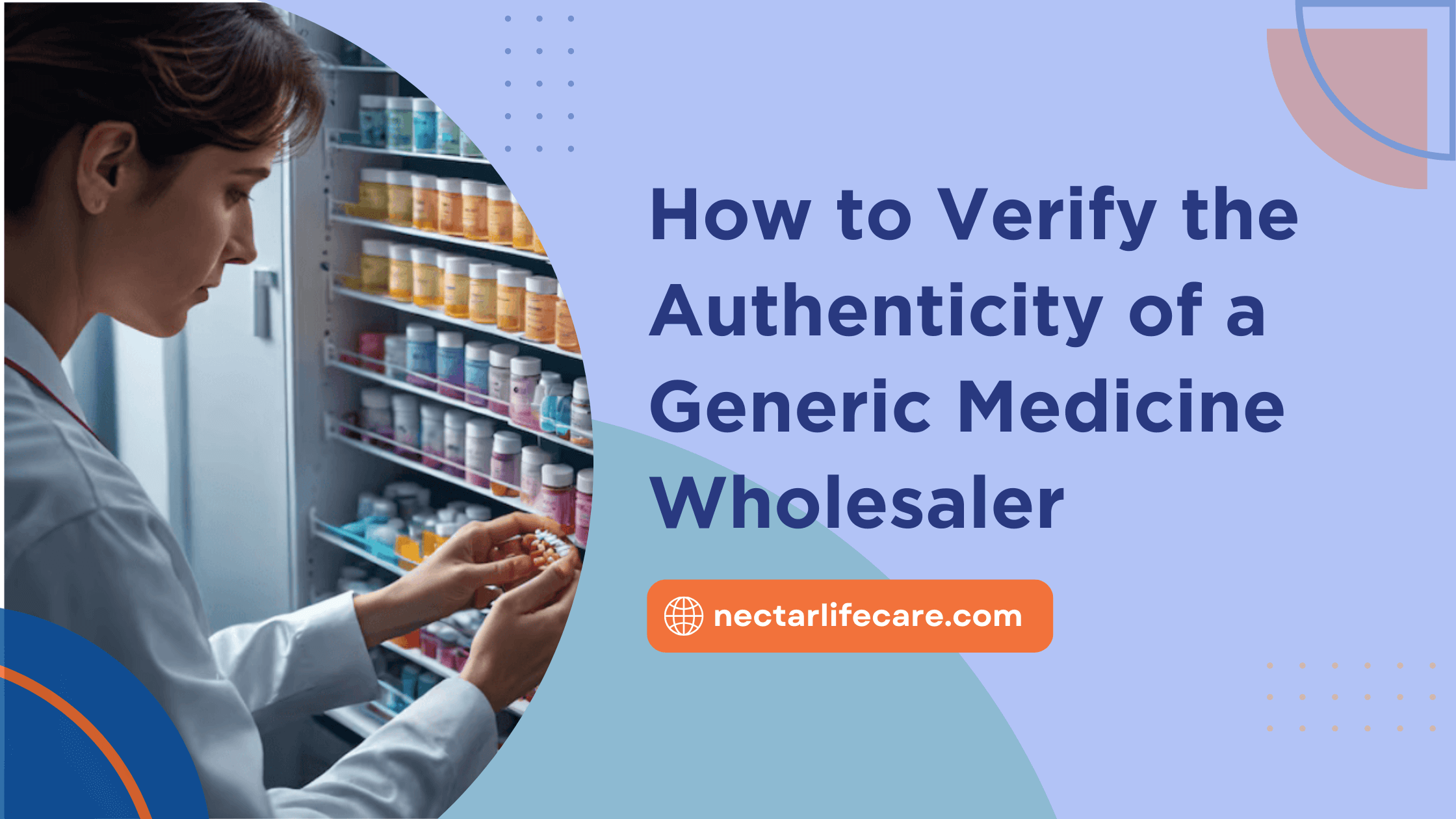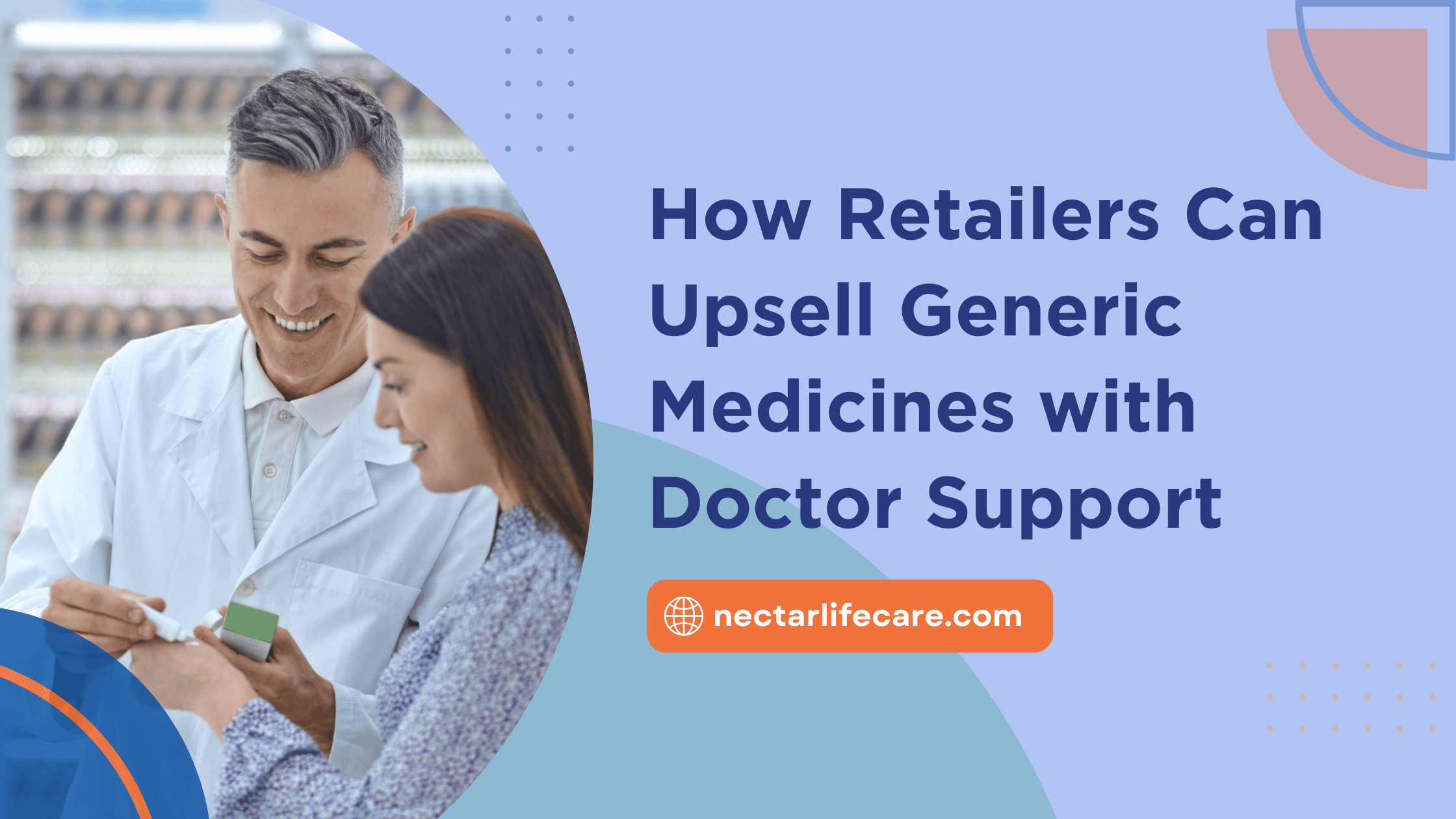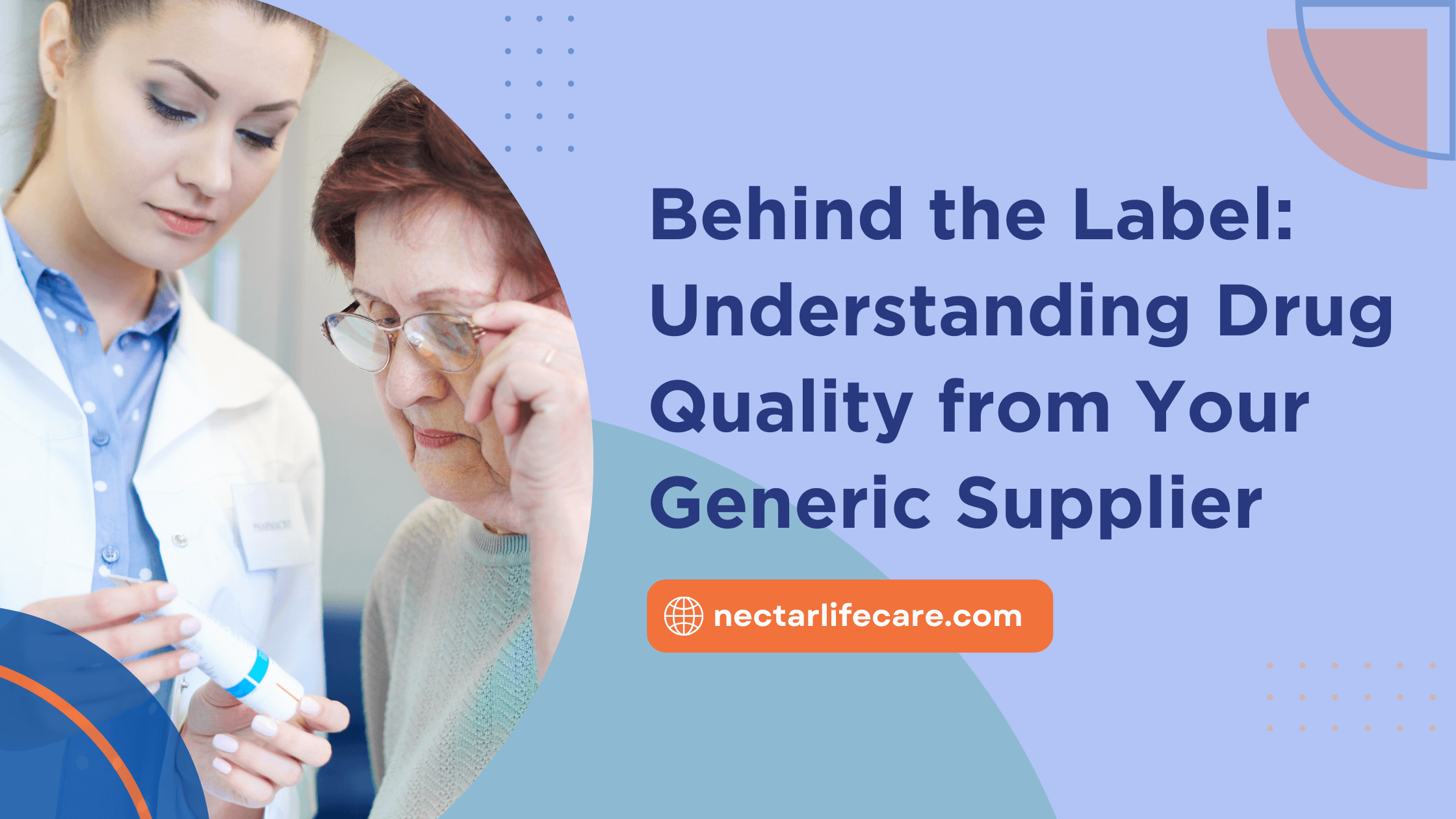Introduction
In India’s evolving healthcare ecosystem, generic medicines are playing a huge role in improving access to affordable treatment. As a pharmacy or medical store dealing in generic medicine wholesale, your job doesn’t end once a customer makes a purchase. In fact, it’s just the beginning.
Many Indian customers are still unaware of what generic medicines actually are, how they work, and why they are priced lower than branded alternatives. This confusion can lead to doubt, hesitation, or even distrust, despite the fact that generics are safe, effective, and regulated by Indian authorities.
That’s why it’s essential to educate your customers after they buy generic medicines. Let’s explore the best ways to do this.
Why Education After Purchase Is Important
While price attracts customers to generics, proper education ensures long-term trust. Here’s why post-purchase awareness matters:
- Builds customer confidence in generics
- Reduces return or complaint cases
- Promotes word-of-mouth referrals
- Improves medication adherence and outcomes
- Strengthens your brand as a trusted pharmacy
When your customers understand the value and quality of generic medicines, they are more likely to come back to your store.
1. Provide a Simple Explanation at Checkout
One of the easiest ways to educate is a short conversation at the point of sale. Train your staff to say something like:
“This is a generic version of the branded medicine. It works the same way and is approved by the government. That’s why it costs less.”
This small step goes a long way in clearing doubts, especially for first-time buyers.
2. Hand Out Printed Leaflets or Info Cards
Consider keeping printed flyers or small info cards at your counter with quick facts such as:
- What are generic medicines?
- Are they safe and effective?
- Why do they cost less?
- How should they be stored and consumed?
You can customize these cards with your pharmacy branding and contact details. Distribute them with every generic medicine purchase to leave a lasting impression.
3. Use Posters Inside the Store
Put up educational posters in your store to spark curiosity. Some good poster ideas include:
- “Generic = Same Medicine, Lower Price”
- “Trusted by Doctors, Approved by CDSCO”
- “Generic Medicines Save India ₹10,000 Crore+ Every Year”
Visual communication builds credibility and reinforces your commitment to genuine generic products.
4. Offer Digital Content on WhatsApp or SMS
Once a customer makes a purchase, follow up with a short WhatsApp message or SMS containing:
- A thank-you note
- A link to your generic medicine guide
- Tips on storage, dosage, and shelf life
- Answers to common doubts
For example:
“Thank you for buying from [Pharmacy Name]. Learn more about your generic medicine here: [Your Blog or PDF link]. Stay healthy!”
This adds a personalized touch and keeps your brand top of mind.
5. Train Your Staff for Generic Queries
Your front-end staff is your first line of trust. Ensure they can:
- Explain the difference between generic and branded medicines
- Calm hesitant customers
- Handle complaints professionally
- Recommend generics with confidence
A well-trained team can become your strongest brand ambassadors, especially if you’re working in generic medicine wholesale or run multiple locations.
6. Share Your Supplier’s Credentials
Let customers know that your generic medicines come from reputed sources. Share facts like:
- “Our generics are WHO-GMP certified”
- “We source from Nectar Lifecare, one of India’s trusted generic manufacturers”
- “Each batch is lab-tested and approved”
Customers appreciate transparency, especially when it comes to health-related products.
7. Address Common Myths
Sometimes, customers think generic medicines are “cheap” because they’re low-quality. Counter this with facts such as:
- Generic medicines are 30 to 80 percent cheaper because companies don’t spend on marketing
- The Drug Controller General of India (DCGI) regulates generic drug safety
- Doctors across India recommend generics for common illnesses
Myth-busting builds brand authority and reassures customers that they made the right choice.
8. Create a Simple FAQ Section on Your Website
If you have a pharmacy website, like Nectar Lifecare, consider adding a FAQ section for post-purchase questions:
- “Can I trust this medicine?”
- “What if the medicine looks different from the branded one?”
- “Is it okay for long-term use?”
- “What if I miss a dose?”
Answering these common concerns online builds digital trust and helps even after customers leave your store.
Final Thoughts
Selling generic medicines is not just about offering affordable options, it’s about educating your customers and building lasting trust. By using clear, consistent, and accessible information, you ensure that every buyer becomes a long-term believer in the power of generics.
If you’re into generic medicine wholesale, adding post-purchase education to your sales strategy can lead to better customer retention, stronger relationships, and a growing reputation in the Indian pharma space.
Looking for high-quality, certified generic medicines for your store? Partner with Nectar Lifecare to get the right products along with full support in customer education, compliance, and distribution.

